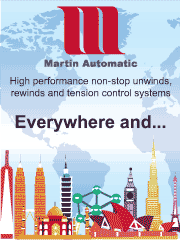Tax Stamp Forum: Recovery of Tax Revenue Paramount for Governments
- Published: April 17, 2009
BUDAPEST, HUNGARY | Governments are being urged to consider the benefits of tax stamps to maximize revenue from tobacco and alcohol sales during the global economic downturn and thwart criminals. That was the message from the first Tax Stamp Forum, which saw delegates from nearly 100 organizations and 33 countries meet in Budapest to discuss the use of excise stamps for alcohol and tobacco products.
The Forum, organized by publishers and consultants Reconnaissance Intl., met to discuss the critical issues facing manufacturers, governments and others involved in combating the costly problem of excise evasion and product fraud. This costs central treasuries around the world billions of dollars a year in lost revenue and is one of the toughest battles hard pressed anti-counterfeiting and law enforcement agencies face.
Delegates heard that while governments are almost helpless to do anything about falling revenue from income and corporation tax, they can take advantage of continuing tobacco and alcohol sales, which are on the increase and seemingly immune to recession. The opportunity is now there for governments to act decisively to boost excise revenue from growing alcohol and tobacco sales by investing in the right security technologies.
New security inks, substrates, holograms and digital tax stamps among other technologies are, together with greater enforcement, the key weapons in the battle being fought to garner more revenue, delegates were told. The Forum pointed to the success achieved by Indonesia, where a five-fold increase in tax revenue was achieved following the introduction of a secure tax stamp.
In Brazil, a highly successful tax collection system for tobacco and spirits is being followed by the national government’s decision to launch a parallel system for the collection of taxes on beer, soft drinks and even water. Representatives from revenue agencies and their security printers also told delegates about the implementation and success of programs in Kosovo, Serbia, Colombia, Kyrgyzstan, the UK and in the US, Alaska and California.
However, delegates were warned that technology alone was not a panacea and that enforcement also has a pivotal part to play. The increasing occurrence of Internet sales to avoid tax payments, and the relationship with counterfeit products, was also included.
Sharron Laster of Alaska’s Department of Revenue described the efforts of her agency in securing the payment of excise from those buying cigarettes from out-of-state. This was brought into sharp focus by a subsequent presentation from Charlie Abraham of MarkMonitor which showed the reach and penetration of the Internet as a distribution channel for fake and counterfeit products.
The Forum came as counterfeit cigarettes and alcohol continue to cost billions in lost revenue and the WHO’s Tobacco Report calling for the raising of taxes, to be levied by manufacturers and certified by a stamp. There are over 5.5 trillion cigarettes smoked per year (96% of all tobacco sales), with volume expected to increase as population growth continues in the developing world.
Although wine consumption is declining, the global sale of spirits has increased by 34% and now stands at over 26 billion bottles per year – with growth fastest in Russia and Japan. China continues to consume the most–6.5 billion bottles per year.
The increase in poisoning and deaths due to fake, illicit, or substitute alcohol flooding into markets also points to the dark side of an illegal trade, particularly in those parts of the world where anti-counterfeiting and authentication proced ures are not so strong and the dangers more acute.
Following the success of the initial Forum, Reconnaissance Intl. plans to hold the second one in June 2010, probably in Eastern Europe. Further information can be found at www.taxstampforum.com where copies of the conference proceedings can also be purchased.












